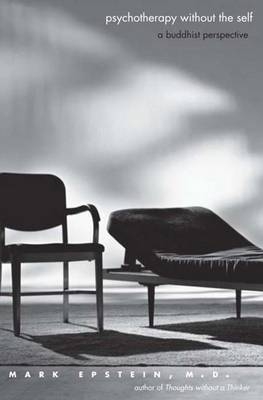
Psychotherapy without the Self
A Buddhist Perspective
Seiten
2007
Yale University Press (Verlag)
978-0-300-12341-8 (ISBN)
Yale University Press (Verlag)
978-0-300-12341-8 (ISBN)
- Titel ist leider vergriffen;
keine Neuauflage - Artikel merken
Deals with the complex relationship between Buddhism and psychotherapy and offers reflections on therapy, meditation, and psychological and spiritual development. This book offers a look at desire, anger, and insight and helps reinterpret the Buddha's Four Noble Truths and central concepts such as egolessness and emptiness.
Immersed in Buddhist psychology prior to studying Western psychiatry, Dr. Mark Epstein first viewed Western therapeutic approaches through the lens of the East. 'This posed something of a challenge', he observes. 'The central tenet of Buddha's wisdom is the notion of no-self, while the central focus of Western psychotherapy is the self. Yet both systems promise liberation through self-awareness'. This book, which includes writings from the past twenty-five years, wrestles with the complex relationship between Buddhism and psychotherapy and offers nuanced reflections on therapy, meditation, and psychological and spiritual development. A bestselling author and popular speaker, Epstein has long been at the forefront of the effort to introduce Buddhist psychology to the West. His unique background enables him to serve as a bridge between the two traditions, which he has found to be more compatible than at first thought.
Engaging with the teachings of the Buddha as well as those of Freud and Winnicott, he offers a compelling look at desire, anger, and insight and helps reinterpret the Buddha's Four Noble Truths and central concepts such as egolessness and emptiness in the psychoanalytic language of our time.
Immersed in Buddhist psychology prior to studying Western psychiatry, Dr. Mark Epstein first viewed Western therapeutic approaches through the lens of the East. 'This posed something of a challenge', he observes. 'The central tenet of Buddha's wisdom is the notion of no-self, while the central focus of Western psychotherapy is the self. Yet both systems promise liberation through self-awareness'. This book, which includes writings from the past twenty-five years, wrestles with the complex relationship between Buddhism and psychotherapy and offers nuanced reflections on therapy, meditation, and psychological and spiritual development. A bestselling author and popular speaker, Epstein has long been at the forefront of the effort to introduce Buddhist psychology to the West. His unique background enables him to serve as a bridge between the two traditions, which he has found to be more compatible than at first thought.
Engaging with the teachings of the Buddha as well as those of Freud and Winnicott, he offers a compelling look at desire, anger, and insight and helps reinterpret the Buddha's Four Noble Truths and central concepts such as egolessness and emptiness in the psychoanalytic language of our time.
Mark Epstein, M.D. is a psychiatrist in private practice in New York City and clinical assistant professor of psychology at New York University. His previous books include Thoughts without a Thinker, Going to Pieces without Falling Apart and Open to Desire.
| Erscheint lt. Verlag | 2.11.2007 |
|---|---|
| Zusatzinfo | 2 b&w illustrations |
| Sprache | englisch |
| Maße | 152 x 230 mm |
| Themenwelt | Geisteswissenschaften ► Religion / Theologie ► Buddhismus |
| Medizin / Pharmazie ► Medizinische Fachgebiete ► Psychiatrie / Psychotherapie | |
| ISBN-10 | 0-300-12341-8 / 0300123418 |
| ISBN-13 | 978-0-300-12341-8 / 9780300123418 |
| Zustand | Neuware |
| Haben Sie eine Frage zum Produkt? |
Mehr entdecken
aus dem Bereich
aus dem Bereich
Philosophische Betrachtungen
Buch | Softcover (2024)
Aufbau TB (Verlag)
CHF 20,95
Unterweisungen in Zen-Meditation
Buch | Hardcover (2024)
Arkana (Verlag)
CHF 29,90


